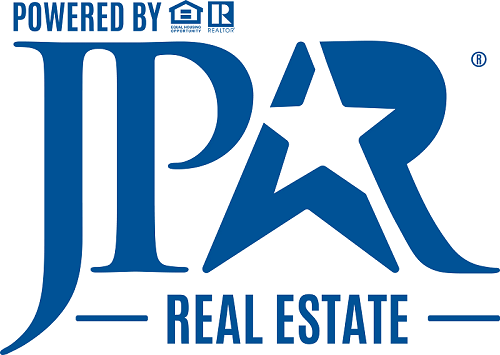Inheriting a property can be tough emotionally as well as on your bank account. Does the property need expensive upgrades and repairs? How much will you have to pay in taxes? Is there a will or will you need to deal with the probate process? But inherited properties are also a great opportunity for real estate investors and buyers looking for a discount on a property they can make their own. But what does it take for a homeowner to sell an inheritance? Are there special steps that need to be taken to deal with this type of sale? This article will explain the process of selling an inherited property to (hopefully) make a profit.
How To Sell An Inherited Property in Frisco TX
So you’ve inherited a property and you’re not sure what happens next. In most states, the inherited property must go through a probate process so the courts can determine who is the legal owner. Probate is a legal process in which the Court legally transfers ownership of the estate’s assets to one or more beneficiaries and/or Heirs. Depending on the state of the will (if there was one), this process can be very fast or very slow.

Determine the Executor
For inherited properties with a will, establishing the executor of the estate should be straightforward. One of the most important aspects of a will is establishing an executor that is able to carry out the deceased’s wishes through the process of probate. Any assets listed in a will can’t be sold until the will is validated by the Court but, once approved, the executor of the will is allowed to act on the wishes of the deceased. But if the will is contested or there is no will, the process might take longer as the Court gets involved.
The probate court will appoint someone not associated with the family as an administrator to the estate. These administrators play a similar role as an executor; they are responsible for carrying out the wishes of the deceased as stated in the will, as well as paying off any of the estate’s debts and distributing any assets. They may also determine if any real estate assets will need to be sold to pay off the estate’s debts, including back taxes, mortgages, etc.

Working with Lawyers and Real Estate Agents
Probate is not a simple process which is why you’ll want an experienced lawyer to help you navigate the potential pitfalls of selling an inherited home. But once you have the probate court’s okay to move forward with the sale of the property, working with a real estate agent that has dealt with inherited homes before will be your next smart step. An experienced agent with probate experience will understand the nuances and regulations for this type of sale. They can help you find the right buyer to help you get top dollar for the inherited property. They also will be a helpful guide to let you know what is worth spending time and money to fix up and upgrade, and what is a waste of your time. Listening to their advice may be the difference between selling a property quickly and for a profit, or being stuck with a house that sits on the market for too long and sells for below market value.

Resolve Any Debts
When you hear the word “inheritance” do you think of a mysterious great-aunt leaving you a million-dollar mansion in the woods, or do you understand the reality of having to deal with a property that might have liens against the title, years of back taxes, as well as a mortgage that leaves you with the ability to make much of a profit after a sale? Sadly, dealing with a loved one’s passing often means dealing with their debt, whether that’s in the form of taxes, a mortgage, or maxed out credit cards. Any assets you inherit must go to paying off that debt first before you can see one dime of the estate. While a house may seem like a huge asset, it also can be a huge money pit. An experienced estate advisor can help you research your options when it comes to dealing with an estate.

Clean & Restore the Home
Once ownership has been decided and the property is considered yours, your next step will be to decide whether you want to live in it, rent it out, or sell it. Many times, when a loved one passes they leave behind a house that is not in the best of shape. Whether the property hasn’t been kept up in the past decade and needs major cleaning and repair, or there were never any upgrades done and the house will need to be completely renovated to make it “market ready”, this is the part of an inheritance that is often forgotten about.
Contact Us today for your cash offer!
Contact us today and get a competitive cash offer for an inherited house, condo, or property. We buy homes in any condition, and we can also help with the convoluted process of selling a house in probate!
Do all heirs have to agree to sell the property?
Not all heirs need to agree to sell an inherited property if ownership has been established by a will or through probate court. When a will clarifies ownership, or if a probate court has clearly designated the property’s handling, the sale can proceed without full agreement among all heirs. However, when ownership is not clearly established, such as in cases where there is no will or a court-appointed administrator oversees the estate, all heirs generally need to agree to the sale. This is also true if a court orders the property to be sold to pay off estate debts, as unanimous agreement among heirs is required. If one or more heirs disagree with the sale after the property has been auctioned, the purchase may be paused until the dispute is resolved and a fair settlement is reached.
How to Settle Disagreements Among Heirs
Settling disagreements over an estate can be challenging, but there are effective ways to handle conflicts. Having an executor is a crucial first step, as this designated person ensures that the deceased’s wishes are honored as set forth in the will. A trusted executor can manage assets without the need for consensus on every decision. However, when there is no executor and the will is disputed, hiring a mediator may be the next best step. Mediators are neutral parties who specialize in facilitating discussions and helping families reach agreements, which can often be a more affordable and less adversarial solution than going through probate court.
When the disagreement is about the executor themselves, especially if a family member is appointed to the role, tensions can arise if other heirs feel there is bias. In such cases, the appointed executor can step aside, allowing a neutral party, like an estate-planning attorney, to manage the estate impartially. By involving a neutral third party, heirs can avoid unnecessary disputes and focus on fulfilling the deceased’s wishes.
Best Practices When Managing an Inherited Property Sale
The process of selling inherited property can be complex, especially if there are disagreements among heirs. The key to navigating these situations is often clear communication and, if necessary, the involvement of neutral professionals. Ensuring the presence of a fair executor, hiring a mediator if conflicts arise, and even bringing in a neutral fiduciary can help keep the focus on honoring the deceased’s intentions while reducing the risk of permanent family rifts. Taking these steps allows families to handle estate matters with respect, fairness, and peace of mind, preserving both their relationships and their legacy.
How is inherited property taxed when sold?
Inherited property can carry several types of taxes when sold, and navigating these can be complex, as state and federal tax rules vary. In 2020, U.S. state and local governments collected over $5.3 billion from estate and inheritance taxes alone. Understanding how taxes may apply in your case—and consulting an experienced tax attorney—can help you manage tax obligations effectively when selling an inherited property.
State Tax Laws
State laws differ widely regarding taxes on inherited property. Some states impose an estate tax, others levy an inheritance tax, and a few require both. Currently, 12 states collect an estate tax, five states apply an inheritance tax, and one state (Maryland) requires both. Estate taxes are paid by the estate itself before inheritance is distributed, while inheritance taxes are paid by heirs after receiving their share. Beyond estate and inheritance taxes, states also often impose capital gains taxes on profits from property sales, making it essential to understand your state’s specific regulations.

Capital Gains Tax on Inherited Property
The capital gains tax applies when an inherited asset, like real estate, is sold for a profit, meaning the tax is based on the increase in the property’s value from the original purchase price to the sale price. Fortunately, inherited property generally benefits from a “stepped-up basis,” which adjusts the property’s value to its fair market value at the time of inheritance. This means heirs only owe capital gains tax on any appreciation that occurs after they inherit the property, reducing the taxable amount significantly. For example, if the inherited property’s value was $200,000 at the time of the original owner’s death and is sold later for $250,000, only the $50,000 gain is subject to capital gains tax. Some states, such as Washington, provide exemptions for capital gains tax on properties sold below a certain threshold, like $250,000. Consult a tax attorney to explore possible exemptions or strategies to minimize your capital gains tax, such as reinvesting proceeds into another property through a 1031 exchange.

Estate Taxes
An estate tax is a tax paid from the estate before heirs receive their inheritance, ensuring that the estate’s value meets a minimum threshold before taxes apply. In 2023, the federal estate tax threshold was set at $12.92 million, meaning that estates valued under this limit are exempt from federal estate taxes. This threshold allows many estates to pass on their assets tax-free. States with their own estate tax often set much lower thresholds, so it’s critical to verify local estate tax laws to understand if any estate taxes apply. While estate tax laws vary, some states are repealing them, reducing the number of states where estate tax is required.

Inheritance Taxes
Inheritance tax, unlike estate tax, is paid by individual heirs after they inherit assets, based on the value of their share. Only six states—Maryland, Nebraska, Iowa, Kentucky, Pennsylvania, and New Jersey—impose inheritance taxes, making it unlikely you’ll encounter this tax. Even in these states, inheritance taxes may vary by relationship, with close family members often receiving larger exemptions. Each state has its own rules and rates for inheritance tax, so it’s best to seek guidance if your inherited property is in a state that applies this tax.
Documents required to sell an inherited property
To show legal ownership and place a property for sale, you will need to have a copy of the documents issued by the court that grant you the legal authority to act as the executor or administrator of the estate. These documents will establish your ability to manage the inherited property. Once a buyer is found and you are ready to close, you’ll need the deed, title insurance, or other relevant legal records to establish the legal ownership of the inherited property.
Do your research regarding what additional documents may be needed to sell an inherited property! Some jurisdictions may require additional property-related documents, including previous surveys, inspections, or any other relevant paperwork that pertains to the property’s condition or history.
Is there an easier way to sell?
Yes, there is! Gravitas Property Group is a direct house buying company that has built our reputation on buying inherited houses for cash with less stress and less fees. Contact us today and get a competitive cash offer for an inherited house, condo, or property. We buy homes in any condition, and we can also help with the convoluted process of selling a house in probate! Let us make your home selling experience as straightforward and stress-free as possible so you can move on with your life.
Even if the house suffered major damage in the last storm or was neglected for years and needs a large amount of upgrades to make it “market ready”, once you accept our fair cash offer our team of experts will handle all of those expensive repairs so you don’t have to! We make selling an inherited house easy.
Contact Us today for your cash offer!
If you own a property that’s stuck in probate that you are ready to sell, call us at (817) 201-0625 day or night to get a competitive cash offer for that inherited home. We buy properties in any condition and no matter what the estate’s financial situation might be.


